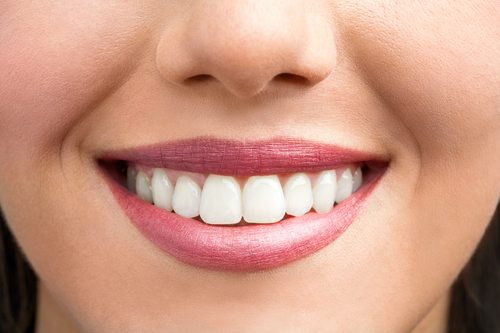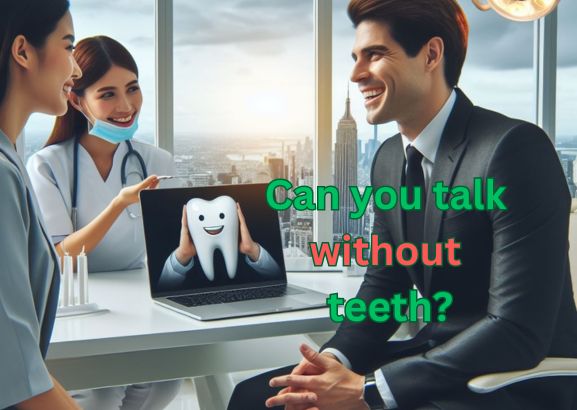Healthy Teeth Habits: Shine with a Confident Smile!
Last Updated on 6 months by DR. ALBIN SIPES
Healthy teeth require proper oral hygiene and regular dental check-ups. Taking care of your teeth includes brushing twice a day, flossing daily, and avoiding sugary or acidic foods and drinks.
Neglecting dental care can lead to tooth decay, gum disease, and other oral health problems. Good oral hygiene is essential for maintaining healthy teeth and overall well-being. Brushing and flossing daily remove plaque and prevent cavities. Regular dental check-ups can catch and treat any issues early on, preventing further damage.
Eating a balanced diet and avoiding sugary or acidic foods and drinks can also promote healthy teeth. Poor oral health can lead to pain, discomfort, and even tooth loss. By taking care of your teeth, you can ensure a healthy smile and a happy life.

The Importance Of Oral Hygiene
The importance of oral hygiene cannot be emphasized enough. Maintaining good oral health is not just about having a bright smile; it is also crucial for overall wellness. Neglecting dental care can have significant impacts on your health and well-being.
Poor oral hygiene can lead to various dental problems such as tooth decay, gum disease, and bad breath. However, the consequences of neglected dental care go beyond the mouth. Research has shown a strong connection between oral health and systemic conditions like cardiovascular disease, diabetes, respiratory infections, and even preterm birth.
Regular brushing, flossing, and visiting the dentist are essential habits to prevent dental issues and maintain optimal oral health. Taking care of your teeth and gums not only enhances your smile but also contributes to your overall well-being. So, prioritize your oral hygiene and reap the benefits of a healthy mouth and body.

Brushing Basics
Proper brushing techniques are essential for maintaining healthy teeth. Choosing the right toothbrush is the first step towards achieving optimal oral hygiene. It is recommended to use a soft-bristled brush to avoid damaging the enamel and gums. Brushing should be done at least twice a day, for two minutes each time. To ensure thorough cleaning, divide the mouth into quadrants and spend equal time brushing each section. Use gentle, circular motions and pay attention to all surfaces of the teeth, including the front, back, and chewing surfaces. Don’t forget to brush the tongue as well, as it can harbor bacteria and cause bad breath. Regularly replacing your toothbrush every three to four months is also important to maintain its effectiveness.
Flossing Fundamentals
Flossing is an essential part of maintaining healthy teeth. Regular flossing can prevent gum diseases and tooth decay. It removes plaque and food particles that brushing alone cannot reach. By flossing daily, you can improve your overall oral health.
There are various benefits of regular flossing. It helps in preventing bad breath, reducing the risk of cavities, and preventing gum diseases such as gingivitis. Flossing also helps in removing stains and keeping your teeth white and shiny.
| Correct Flossing Methods |
|---|
| 1. Use a piece of floss about 18 inches long. |
| 2. Wrap the floss around your fingers and hold it tightly. |
| 3. Gently slide the floss between your teeth. |
| 4. Curve the floss around the base of each tooth, making sure you go beneath the gumline. |
| 5. Use a clean section of floss for each tooth. |
The Role Of Diet In Dental Health
Eating a balanced diet is essential for maintaining healthy teeth. Certain foods can promote strong teeth, while others can be harmful and should be avoided.
Foods that promote strong teeth include:
- Fresh fruits and vegetables: These provide essential vitamins and minerals that strengthen teeth.
- Dairy products: Milk, cheese, and yogurt are rich in calcium, which is crucial for tooth enamel.
- Lean proteins: Chicken, fish, and eggs contain phosphorus, which aids in tooth development and repair.
On the other hand, it is important to avoid or limit consumption of harmful foods, such as:
- Sugary snacks and drinks: Excessive sugar intake can lead to tooth decay.
- Acidic foods and drinks: Citrus fruits, sodas, and sports drinks can erode tooth enamel.
- Sticky and chewy foods: These can get stuck in the teeth and increase the risk of cavities.
By making conscious food choices and practicing good oral hygiene, you can contribute to the overall health and strength of your teeth.
Professional Dental Care
Regular routine check-ups and cleanings are essential for maintaining good oral health. It is recommended to visit a dentist at least twice a year for a thorough examination and professional cleaning. These routine visits can help prevent potential dental issues and detect any problems early on. In addition to routine care, it is important to seek dental treatment if you experience any pain, discomfort, or unusual symptoms in your mouth or teeth. Ignoring dental problems can lead to more serious issues and may require more extensive treatment in the future. By prioritizing professional dental care and seeking treatment when needed, you can ensure the long-term health and well-being of your teeth and gums.
Teeth Whitening Safely
Natural teeth whitening methods can be effective and gentle on your teeth. Options such as oil pulling and baking soda can help brighten your smile without harsh chemicals. On the other hand, over-the-counter whitening kits are convenient but may contain abrasive ingredients. Professional treatments, including in-office procedures and customized trays, offer long-lasting results and are monitored by dental professionals for safety and efficacy.
Addressing Common Dental Problems
Addressing common dental problems involves taking steps to prevent tooth decay and gum disease. Proper oral hygiene practices such as brushing and flossing regularly can help in maintaining good dental health. Regular dental check-ups are essential for early detection of any issues and professional cleanings can remove plaque and tartar buildup. Avoiding sugary and acidic foods can help prevent decay. Sensitive teeth can be managed by using sensitive toothpaste and avoiding extreme temperatures. Pain can be addressed by visiting a dentist for proper evaluation and treatment.
Innovations In Dental Hygiene
| Healthy Teeth: | Innovations in Dental Hygiene |
| Latest Tools for Oral Care: | Emerging Trends in Dentistry |
Technological advancements have revolutionized dental hygiene, introducing innovative tools for oral care. These tools cater to specific dental needs, such as plaque removal and gum health. Moreover, emerging trends in dentistry focus on preventive measures and personalized treatments. Patients benefit from cutting-edge procedures that ensure optimal oral health.
Children’s Dental Health
| Healthy Teeth |
| Children’s Dental Health |
| Instilling Good Habits Early |
| Dealing with Pediatric Dental Anxiety |
Encouraging good habits like brushing and flossing regularly helps maintain healthy teeth. Creating a positive dental experience for kids is crucial. Addressing anxiety through gentle care and communication is important. Regular check-ups and cleanings support dental health in children.

Myths And Facts About Oral Health
| Healthy Teeth |
| Myths and Facts about Oral Health |
| Debunking Common Misconceptions |
Healthy teeth are essential for overall well-being. Brushing and flossing daily are crucial habits. Regular dental check-ups are important for prevention. Avoid sugary snacks for better oral health.
Frequently Asked Questions
How Can I Maintain Good Oral Hygiene?
Brush your teeth twice a day, floss regularly, and visit your dentist for check-ups.
What Are The Best Foods For Healthy Teeth?
Eat dairy products, leafy greens, and crunchy fruits and vegetables for strong teeth.
Why Is It Important To Visit The Dentist Regularly?
Regular dental check-ups help prevent tooth decay, gum disease, and maintain overall oral health.
Conclusion
Incorporating good oral hygiene habits contributes to overall health and well-being. Remember, brushing, flossing, and regular dental check-ups are essential. By prioritizing your oral health, you are investing in a brighter and healthier future. Make your smile a priority and enjoy the benefits of a confident and healthy smile.


